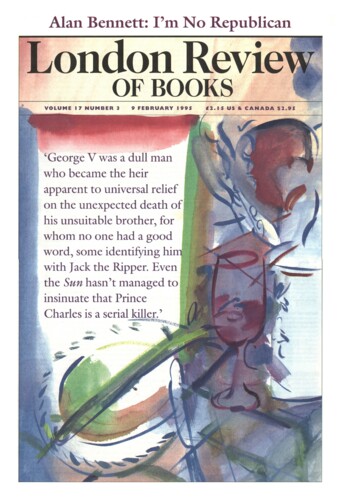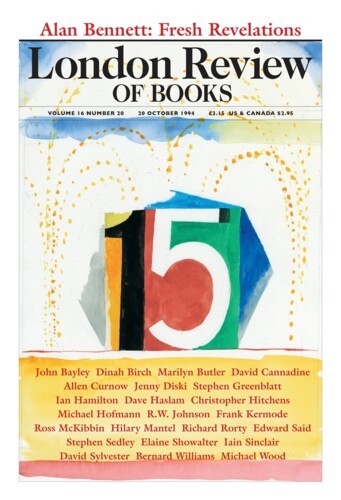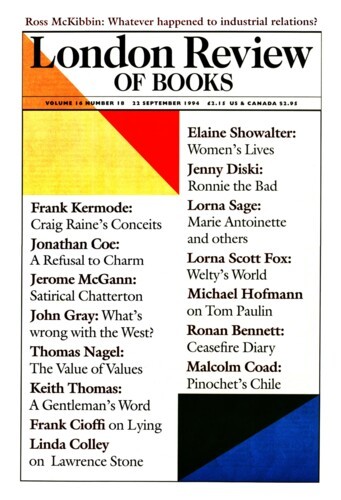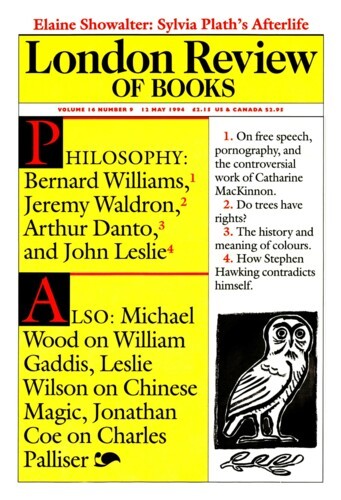Diary: At the Modern Language Association
Elaine Showalter, 9 February 1995
It’s always surreal arriving at the annual four-day meeting of the Modern Language Association. You land at a distant airport, check into a strange hotel, and there in the lobby are all the people you’ve ever known, former teachers, former students, ex-lovers, ex-spouses, old friends and (last year’s useful word) old frenemies – people you don’t like but may someday need. The conference attracts literary scholars from all over the world. Sipping espresso at an outdoor café, I met a Swiss critic of contemporary French fiction, on his first trip to the United States. He was shocked by American coffee, but calmly prepared for the MLA. ‘J’ai lu David Lodge,’ he boasted, brandishing his tattered copy of Small World.’’





